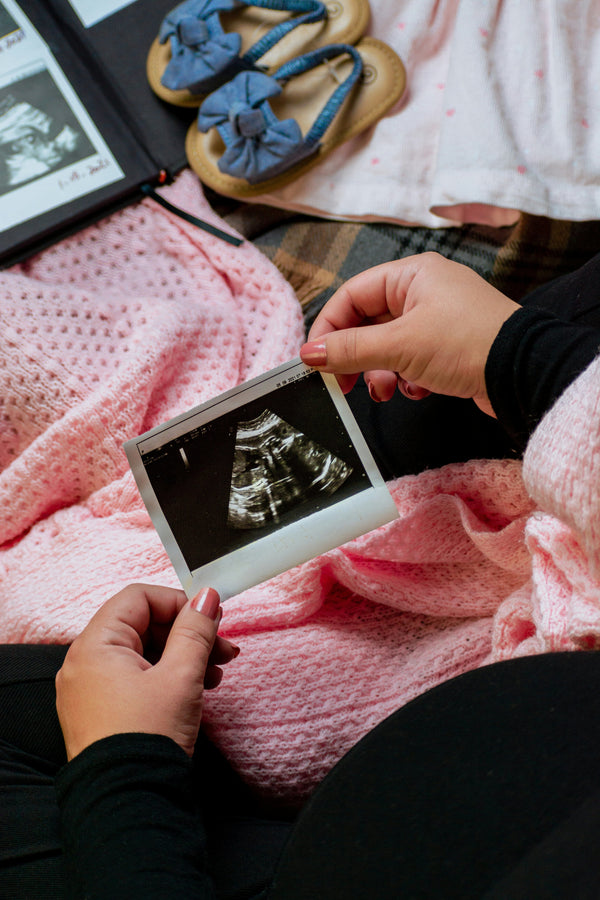Article
Pregnancy Sickness
Posted on
Sickness is one of the most common and least enjoyable symptoms of early pregnancy. Affecting up to nine out of ten women, nausea and vomiting can strike at any time of day, not just in the morning. So if you are not exactly glowing during those first few weeks, or even beyond, you are certainly not alone.
In most cases, symptoms ease by the end of the first trimester, although for some, they may continue longer. Rarely, nausea and vomiting can become very severe, a condition known as Hyperemesis Gravidarum (HG), affecting around one in 100 to 150 women. In these cases, medical attention and sometimes hospital care are needed.
Why Does Sickness Happen?
Researchers do not yet fully understand why sickness occurs, but there are several likely causes that change slightly across the trimesters
First Trimester (Weeks 1 to 13): Hormone Surge
In early pregnancy, levels of human chorionic gonadotropin (hCG) and oestrogen rise rapidly to support the developing embryo. These hormonal changes are thought to trigger the nausea response.
At the same time, your sense of smell becomes heightened and your stomach may empty more slowly, both of which can make certain foods or smells suddenly unbearable
Second Trimester (Weeks 14 to 27): Digestive Adjustments
By this stage, hCG levels usually stabilise, and many women find nausea begins to fade. However, some may still experience queasiness due to progesterone, a hormone that relaxes smooth muscles, including those in the digestive tract. This can lead to heartburn, slower digestion and occasional nausea
Third Trimester (Weeks 28 to 40): Physical Pressure
If nausea returns later in pregnancy, it is often due to the growing uterus pressing on the stomach, causing discomfort or reflux after meals. Eating smaller, more frequent meals can help reduce this pressure and prevent sickness from returning
Coping Tips for Nausea
A few small adjustments can make a big difference
- Eat little and often. An empty stomach can worsen nausea, so try small snacks every two to three hours
- Keep plain foods handy. Dry toast, crackers or plain rice are gentle on your stomach
- Stay hydrated. Sip water or herbal teas throughout the day. Ice chips or diluted fruit juice can also help
- Rest when you can. Fatigue can intensify nausea, so prioritise rest and gentle activity
- Try ginger or vitamin B6. Both have been shown to help ease mild nausea in pregnancy
Why Supplementation Matters When You Are Feeling Sick
When you are frequently sick or unable to tolerate a balanced diet, your nutrient intake may fall short, even if you are eating whenever you can. Vitamins and minerals such as folate, iron, vitamin D and choline are particularly crucial during pregnancy for both your health and your baby’s development
- Folate (Folic Acid) is essential in early pregnancy for preventing neural tube defects and supporting healthy cell growth
- Choline supports your baby’s brain and spinal cord development and complements folate in building healthy cells
- Omega-3 DHA plays a key role in your baby’s brain, eye and nervous system development
- Iron and B Vitamins help prevent fatigue and support the increased blood production your body needs
That is why taking a carefully formulated prenatal supplement can be so helpful as it helps cover any nutritional gaps, especially when food is hard to keep down.
Recommended Supplements by Trimester
We have created specially developed multivitamin and mineral supplements tailored to the specific needs of each stage of pregnancy
First Trimester: Vital Essence 1 provides support in early development with folate, B vitamins and gentle iron
Second Trimester: Vital Essence 2 maintains your energy levels and supports continued growth and nutrient transfer
Third Trimester: Vital Essence 3 supports you through the final weeks with calcium, magnesium and key nutrients for late-stage development
Morning sickness may be unpleasant, but it is often a reassuring sign that your body is adapting to support new life. By nourishing yourself gently, staying hydrated and supplementing wisely, you can help your body and your baby get exactly what they need through every trimester
If you are in need of a natural pick-me-up, try our Green Energiser Recipe, a refreshing way to boost your energy and top up on vital nutrients
Further reading
-

Is this normal in trimester 2?
Pregnancy can feel like a constant swirl of questions and new experiences. The second trimester is often called the “honeymoon... -

Myths About Early Pregnancy Safety
Trigger Warning: This post discusses early pregnancy, including topics such as miscarriage and common symptoms. The first twelve weeks of...


